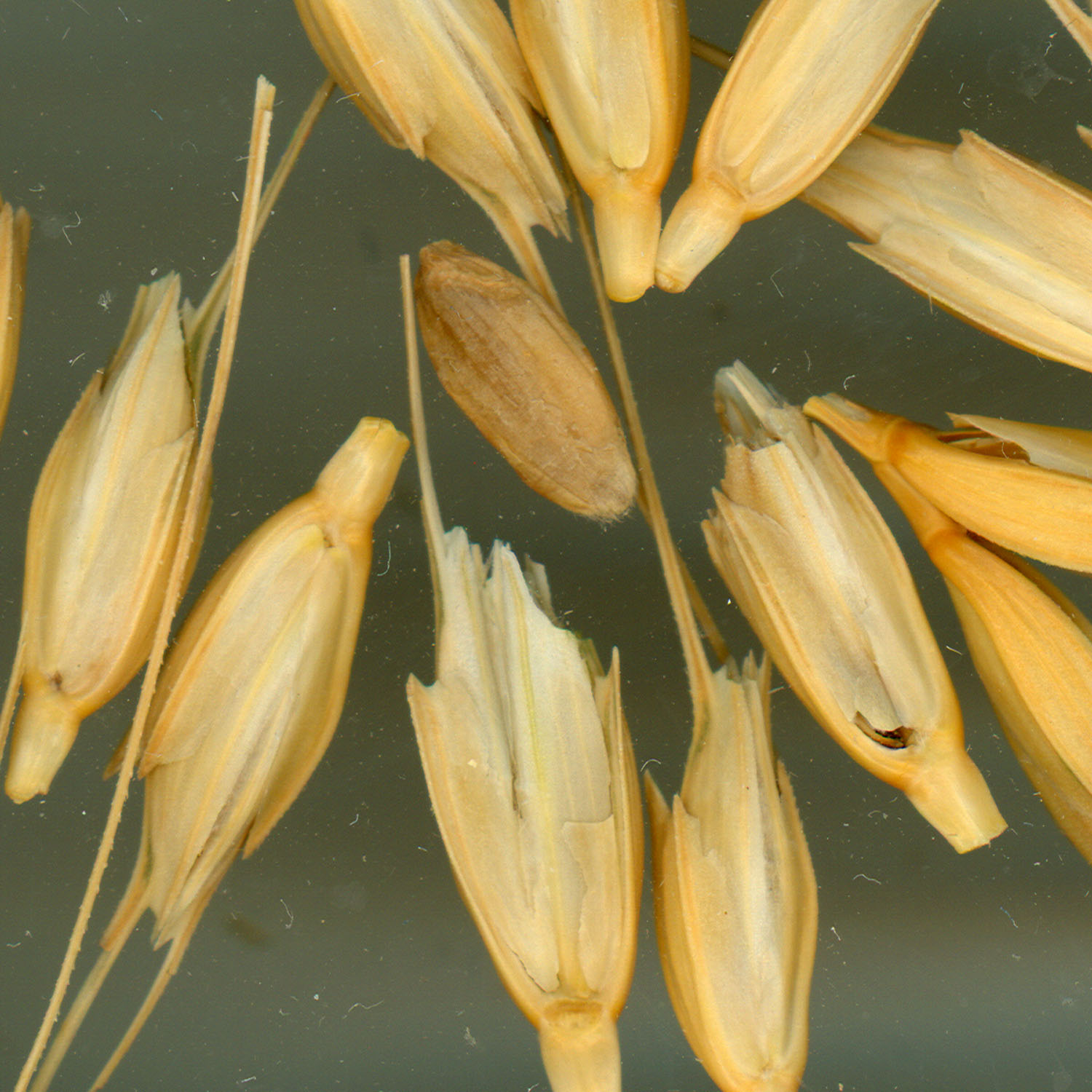|
Russian Grain Exports
Russian grain export - foreign trade operations for the sale of grain, primarily wheat grain to other countries, a traditional item of export income for Russia for centuries, providing the Russian Federation in the 21st century with leadership among the main grain suppliers to the world market along with the EU (2nd place 2019/20), USA (3rd place), Canada (4th place), Ukraine (5th place). Political aspects Historically, Russian wheat exports were preceded by wheat exports from the Black Sea steppes to Ancient Greece and Ancient Rome. The long existence of grain exports in this direction is associated with the peculiarities of the landscape of the Northern Black Sea region, which are extremely favorable for the growth of wheat. Grain export of Russia for a long time had not only economic, but also significant external and internal political importance for the country. It became the subject of public discussion and political speculation in various historical periods of the country' ... [...More Info...] [...Related Items...] OR: [Wikipedia] [Google] [Baidu] |
Grain
A grain is a small, hard, dry fruit (caryopsis) – with or without an attached hull layer – harvested for human or animal consumption. A grain crop is a grain-producing plant. The two main types of commercial grain crops are cereals and legumes. After being harvested, dry grains are more durable than other staple foods, such as starchy fruits (plantains, breadfruit, etc.) and tubers ( sweet potatoes, cassava, and more). This durability has made grains well suited to industrial agriculture, since they can be mechanically harvested, transported by rail or ship, stored for long periods in silos, and milled for flour or pressed for oil. Thus, the grain market is a major global commodity market that includes crops such as maize, rice, soybeans, wheat and other grains. Grains and cereal Grains and cereal are synonymous with caryopses, the fruits of the grass family. In agronomy and commerce, seeds or fruits from other plant families are called grains if they resemble c ... [...More Info...] [...Related Items...] OR: [Wikipedia] [Google] [Baidu] |
Leonid Milov
Leonid Milov (Russian: Леонид Васильевич Милов; 28 July 1929, Moscow - 17 November 2007, Moscow) was a prominent Soviet and Russian historian. He worked at the Faculty of History in Lomonosov Moscow State University. Life and works His primary scientific interests were history of serfdom and genesis of capitalism in the Russian Empire, but he also specialized in Russian medieval law and Byzantine law. Milov was a pioneer of cliometrics Cliometrics (, also ), sometimes called new economic history or econometric history, is the systematic application of economic theory, econometric techniques, and other formal or mathematical methods to the study of history (especially social and e ... in Russia along with professor Ivan Kovalchenko and others. Author of more than 150 works, in 1998 he published his ''opus magnum'' - ''Russian Plowman and Special Aspects of Russian Historical Process''. Having conducted a thorough research of Russian agriculture and peasant l ... [...More Info...] [...Related Items...] OR: [Wikipedia] [Google] [Baidu] |
Grain Trade
The grain trade refers to the local and international trade in cereals and other food grains such as wheat, barley, maize, and rice. Grain is an important trade item because it is easily stored and transported with limited spoilage, unlike other agricultural products. Healthy grain supply and trade is important to many societies, providing a caloric base for most food systems as well as important role in animal feed for animal agriculture. The grain trade is as old as agricultural settlement, identified in many of the early cultures that adopted sedentary farming. Major societal changes have been directly connected to the grain trade, such as the fall of the Roman Empire. From the early modern period onward, grain trade has been an important part of colonial expansion and international power dynamics. The geopolitical dominance of countries like Australia, the United States, Canada and the Soviet Union during the 20th century was connected with their status as grain surplus c ... [...More Info...] [...Related Items...] OR: [Wikipedia] [Google] [Baidu] |
United Grain Company
United Grain Company (russian: Объединенная зерновая компания) is a Russian grain trading company based in Moscow and established in 2007. The company conducts grain procurement activities in Russia, and manages exports on international markets. History The United Grain Company was established on March 21, 2007 as a result of the transformation of the FGUP "Federal Agency for the Regulation of the Food Market" under the Ministry of Agriculture of the Russian Federation, the main function of which was the implementation of state regulation of the grain market. In 2012 Ziyavudin Magomedov's Summa Group bought a 50% minus one share stake in the company. In 2014 the company agreed to trade grain worth $500 million for oil with Iran. The company will build a grain terminal in the Port of Zarubino, in the Russian Far East, by 2020. In August 2017 the Russian Government announced plans to privatize the company by 2019. Current owners The shareholders o ... [...More Info...] [...Related Items...] OR: [Wikipedia] [Google] [Baidu] |
Unitary Enterprise
A unitary enterprise (russian: унитарное предприятие) is a government-owned corporation in Russia and some other post-Soviet states. Unitary enterprises are business entities that have no ownership rights to the assets that they use in their operations. This form is possible only for state and municipal enterprises, which respectively operate state or municipal property. The owners of the property of a unitary enterprise have no responsibility for its operation and vice versa. Russia Federal Law No. 161-ФЗ "''On State and Municipal Unitary Enterprises''" (amended July 13, 2015), defines the legal status of unitary enterprises in Russia. The State Duma passed this law on October 11, 2002, and President Putin signed it on November 14, 2002. The assets of unitary enterprises belong to the federal government, to a Russian federal subject, or to a municipality. A unitary enterprise holds assets under economic management (for both state and municipal unitary ent ... [...More Info...] [...Related Items...] OR: [Wikipedia] [Google] [Baidu] |
Food Security
Food security speaks to the availability of food in a country (or geography) and the ability of individuals within that country (geography) to access, afford, and source adequate foodstuffs. According to the United Nations' Committee on World Food Security, food security is defined as meaning that all people, at all times, have physical, social, and economic access to sufficient, safe, and nutritious food that meets their food preferences and dietary needs for an active and healthy life. The availability of food irrespective of class, gender or region is another element of food security. There is evidence of food security being a concern many thousands of years ago, with central authorities in ancient China and ancient Egypt being known to release food from storage in times of famine. At the 1974 World Food Conference, the term "food security" was defined with an emphasis on supply; food security is defined as the "availability at all times of adequate, nourishing, diverse, bal ... [...More Info...] [...Related Items...] OR: [Wikipedia] [Google] [Baidu] |
Grain Trade
The grain trade refers to the local and international trade in cereals and other food grains such as wheat, barley, maize, and rice. Grain is an important trade item because it is easily stored and transported with limited spoilage, unlike other agricultural products. Healthy grain supply and trade is important to many societies, providing a caloric base for most food systems as well as important role in animal feed for animal agriculture. The grain trade is as old as agricultural settlement, identified in many of the early cultures that adopted sedentary farming. Major societal changes have been directly connected to the grain trade, such as the fall of the Roman Empire. From the early modern period onward, grain trade has been an important part of colonial expansion and international power dynamics. The geopolitical dominance of countries like Australia, the United States, Canada and the Soviet Union during the 20th century was connected with their status as grain surplus c ... [...More Info...] [...Related Items...] OR: [Wikipedia] [Google] [Baidu] |
USSR
The Soviet Union,. officially the Union of Soviet Socialist Republics. (USSR),. was a transcontinental country that spanned much of Eurasia from 1922 to 1991. A flagship communist state, it was nominally a federal union of fifteen national republics; in practice, both its government and its economy were highly centralized until its final years. It was a one-party state governed by the Communist Party of the Soviet Union, with the city of Moscow serving as its capital as well as that of its largest and most populous republic: the Russian SFSR. Other major cities included Leningrad (Russian SFSR), Kiev ( Ukrainian SSR), Minsk ( Byelorussian SSR), Tashkent (Uzbek SSR), Alma-Ata (Kazakh SSR), and Novosibirsk (Russian SFSR). It was the largest country in the world, covering over and spanning eleven time zones. The country's roots lay in the October Revolution of 1917, when the Bolsheviks, under the leadership of Vladimir Lenin, overthrew the Russian Provisional Gove ... [...More Info...] [...Related Items...] OR: [Wikipedia] [Google] [Baidu] |
Russian Empire
The Russian Empire was an empire and the final period of the Russian monarchy from 1721 to 1917, ruling across large parts of Eurasia. It succeeded the Tsardom of Russia following the Treaty of Nystad, which ended the Great Northern War. The rise of the Russian Empire coincided with the decline of neighbouring rival powers: the Swedish Empire, the Polish–Lithuanian Commonwealth, Qajar Iran, the Ottoman Empire, and Qing China. It also held colonies in North America between 1799 and 1867. Covering an area of approximately , it remains the third-largest empire in history, surpassed only by the British Empire and the Mongol Empire; it ruled over a population of 125.6 million people per the 1897 Russian census, which was the only census carried out during the entire imperial period. Owing to its geographic extent across three continents at its peak, it featured great ethnic, linguistic, religious, and economic diversity. From the 10th–17th centuries, the land ... [...More Info...] [...Related Items...] OR: [Wikipedia] [Google] [Baidu] |
Risky Farming Zone
Risky may refer to: * ''Risky'' (album), by B'z, or the title song, 1990 * "Risky", a song by Davido from ''A Good Time'', 2019 * "Risky", a song by Lil Durk from ''7220 ''7220'' is the seventh studio album by American rapper Lil Durk. It was released through Only the Family, Alamo Records, and Sony Music on March 11, 2022. The album features guest appearances from Future, Gunna, Summer Walker, and Morgan Wallen. ...'', 2022 * "Risky", a song by Saweetie from '' Pretty Summer Playlist: Season 1'', 2021 * "Risky", a song by Ryuichi Sakamoto from ''Neo Geo'', 1987 * Risky Creek, Alaska, United States See also * Risky Business (other) * Risqué (other) {{disambiguation ... [...More Info...] [...Related Items...] OR: [Wikipedia] [Google] [Baidu] |
Wheat Grain
Wheat is a grass widely cultivated for its seed, a cereal grain that is a worldwide staple food. The many species of wheat together make up the genus ''Triticum'' ; the most widely grown is common wheat (''T. aestivum''). The archaeological record suggests that wheat was first cultivated in the regions of the Fertile Crescent around 9600 BCE. Botanically, the wheat kernel is a type of fruit called a caryopsis. Wheat is grown on more land area than any other food crop (, 2014). World trade in wheat is greater than for all other crops combined. In 2020, world production of wheat was , making it the second most-produced cereal after maize. Since 1960, world production of wheat and other grain crops has tripled and is expected to grow further through the middle of the 21st century. Global demand for wheat is increasing due to the unique viscoelastic and adhesive properties of gluten proteins, which facilitate the production of processed foods, whose consumption is increasin ... [...More Info...] [...Related Items...] OR: [Wikipedia] [Google] [Baidu] |


.jpg)

